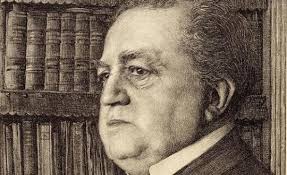What we are experiencing in our times is merely a replaying of classic higher criticism. In the 19th century, Abraham Kuyper argued that modernist scholarship was an attempt to regard themselves as holy. Their worldly wisdom would uphold their elite status because their ethical values were free from religious control.
Kuyper noted that they think they have found the truth, but they have attributed “reality to a mirage, a fairy tale.”a He further argued that the way out of this moral chaos is to make Christian education indispensable to the success of the Church. Since the state was not interested in the biblical concept of truth, “Christians would have to establish their own schools.”
He knew that modernism could only breathe if it kept the lower middle class distant from the political process. In those days, people experiencing poverty remained far from political engagement since most were not allowed to vote because they did not own land. Therefore, Kuyper entered the political scene eager to appeal to the lower middle class. He knew that the poor in the Netherlands wanted to preserve tradition and conserve Christendom in their communities. He called them to enter the political stage to exorcise the modernists from both Church and State.
Our scene today offers us an opportunity to abandon the antipathy towards politics by encouraging the Church to re-enter the stage of history and fight for society’s good; to see their Christian task as far more than merely a spiritual pursuit of heaven, but to see the Church as the fundamental means by which society is transformed.
The modernists today want nothing with truth but opine from the comfort of tenured status, and we must now seek to leave them to their own devices and begin anew with biblical institutions that presuppose the Triune life at every point of human endeavor.
- James E. McGoldrick, Abraham Kuyper: God’s Renaissance Man, 56 (back)


















It could be on account of my lack of familiarity with the source material, but it is unclear to me where you are drawing these implications from Kuyper’s writing, or what the institutional and political implications are of adopting them ourselves.
You say that Christians must establish their own schools, which suggests distinct institutions for distinct worldviews, but you seem to be implying that modernist thought needs to be subordinated to religious controls of some kind. Where do you find this in Kuyper? Does this involve formal or informal establishment of the church?
Also, it seems as though you are suggesting Kuyper’s efforts to establish separate christian schooling was merely a reaction to the state’s disinterest, which implies that, ideally, the state would establish Christian schools. Is this what Kuyper is arguing for?
You say Kuyper anticipated the “exerocis[ing of] the modernists from both Church and State.” I agree that he certainly felt the presence of modernist tendencies in the Reformed Church was contributing to moral backsliding and confusion. But where do you see him arguing for the expulsion of Modernists from politics? Does this extend to people of other faiths and convictions, such as Roman Catholics, Muslims, Socialists, etc.?